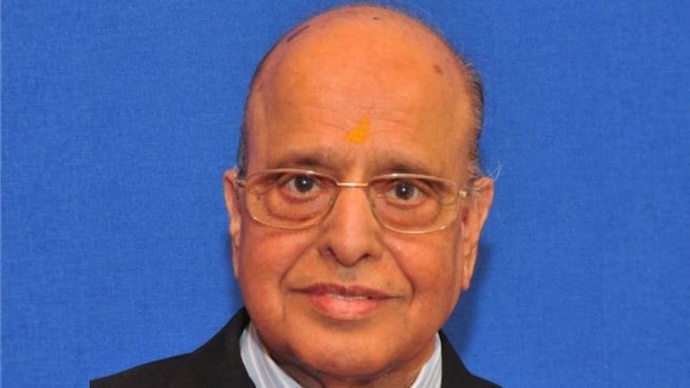25.04.2025
Dr. Kasturirangan led the Isro, the Space Commission, and the Department of Space for over nine years. He stepped down from office on August 27, 2003.

ISRO’s former chairman K Kasturirangan dies in Bengaluru.
Former Indian Space Research Organisation (Isro) chairman K Kasturirangan passed away in his Bengaluru residence on Friday.
According to a statement by Isro, Kasturirangan died at 10.43 am. His body will be kept at Raman Research Institute in Bengaluru on Sunday, April 27 between 10 am and noon, for the public to pay respect.
He led the Isro, the Space Commission, and the Department of Space for over nine years. He stepped down from office on August 27, 2003.
Prime Minister Narendra Modi remembered the former Isro chief as a visionary leader and said, "I am deeply saddened by the passing of Dr. K. Kasturirangan, a towering figure in India’s scientific and educational journey. His visionary leadership and selfless contribution to the nation will always be remembered."
He added that Dr. Kasturirangan served Isro with great diligence, steering India’s space programme to new heights, for which we also received global recognition. "His leadership also witnessed ambitious satellite launches and focussed on innovation," the prime minister said.
Known as the man behind the education reforms, Kasturirangan served as chancellor of the Jawaharlal Nehru University and chairman of the Karnataka Knowledge Commission. He also served as a member of the Rajya Sabha from 2003 to 2009 and as a member of the then Planning Commission of India.
He also served as Director of the Isro Satellite Centre, where he was involved in developing INSAT-2, IRS-1A/1B, and scientific satellites.
He was the Project Director for India’s first earth observation satellites, Bhaskara I and II, and oversaw major milestones like the PSLV and GSLV launches. He has been conferred Padma Shri, Padma Bhushan, and Padma Vibhushan for his contributions.
An astrophysicist by training, his research interests included high-energy X-ray and gamma ray astronomy. He made significant contributions to studies on cosmic X-ray sources, celestial gamma rays, and their effects on Earth’s atmosphere.
